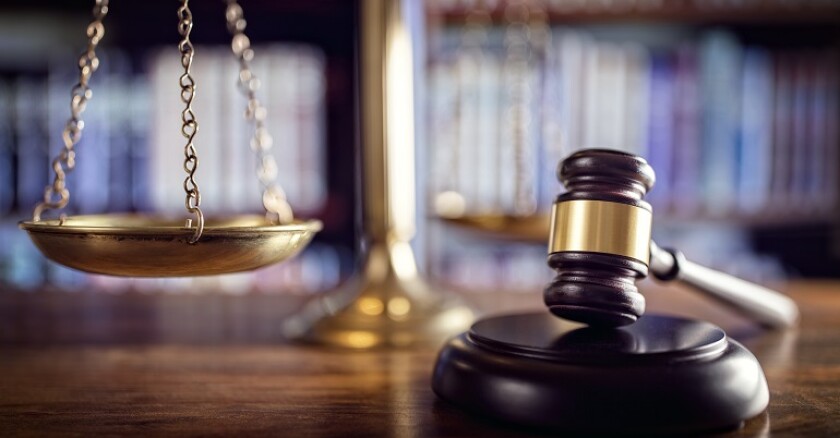In a filing Friday, the FAA said the groups lack legal standing for their claims against the agency that granted a launch license to SpaceX's Starship rocket program. Separately, a SpaceX filing said the first Starship launch on April 20 provided no cause for the FAA to conduct a new environmental assessment, a process that could halt further test launches for years.
"For the foregoing reasons, defendants request that the court dismiss the complaint in its entirety," Todd Kim, assistant attorney general for the environment and natural resources division of the U.S. Department of Justice, wrote in the filing in U.S. District Court in Washington, D.C.
Both are seeking to dismiss a lawsuit filed May 1 by the Center for Biological Diversity, American Bird Conservancy, SurfRider Foundation, Save Rio Grande Valley and the Carrizo-Comecrudo Nation of Texas. It alleged the FAA should have conducted a more in-depth environmental study on the likely impacts of SpaceX activity before allowing it to launch from its Starbase facility at Boca Chica. They also alleged the mitigations the FAA required were not enough to avoid "significant adverse effects" to endangered species, their habitat and tribes in the area that count the land and wildlife sacred.
Their suit seeks to revoke the company's FAA-issued license for flights from South Texas. The license is currently suspended during an investigation into the launch, which public and private assessments found sparked wildfire, spread chunks of metal and concrete over hundreds of acres of company-owned and state park land and propelled "pulverized concrete" more than 6 miles.
In Friday's filing, SpaceX denied Starship is a danger to surrounding wildlife and communities that should have received more review. It also noted that the company's program passed an environmental assessment and complied with FAA-required mitigations. It said it launched Starship "in accordance" with its FAA license, and that the rocket system "successfully lifted off and flew for several minutes before experiencing anomalies that resulted in the termination of the mission and safe destruction of the launch vehicle over the Gulf of Mexico."
SpaceX also appeared to downplay the rocket's impacts on its surroundings. "SpaceX admits that the concrete launch pad deck was damaged during the liftoff, spreading some debris and dust," it said.
After Starship's explosion, the FAA said the "anomaly response plan" referenced in its environmental assessment was activated, which means a new license will be required before another launch.
In its filing, SpaceX said the environmental assessment "has not been withdrawn or modified" and the company is "working toward another launch" of Starship.
SpaceX CEO Elon Musk has continued to tout an aggressive schedule of test launches from South Texas. He's pinned hopes on the reusable rocket system to expand the company's Starlink network of satellites and for NASA's plans for returning astronauts to the moon. It also serves as a vehicle for Musk's long-term goal of populating Mars.
On June 13, Musk tweeted Starship would be ready to launch within six to eight weeks.
In an interview on Twitter, Musk on June 24 told reporter Ashlee Vance the company has made more than 1,000 changes to the rocket's design since April 20, including adaptations to separate the Super Heavy booster from the upper stage known as Starship. The test flight failed to separate the rocket system and it exploded as one unit. Typically, SpaceX fires the upper stage Raptor engines after lighting those on the booster. But now, the company is aiming to use "hot staging," Musk said, a technique that involves simultaneously firing up engines on both stages — which would increase thrust power.
Two days later, SpaceX said it successfully completed "a six engine static fire test" on the upper stage Starship prototype Ship 25 at Boca Chica.
Despite SpaceX's schedule claims, NASA has been wary of the company's ability to conduct test flights needed to have its lunar lander version ready to carry astronauts to the moon. In early June, it said its Artemis 3 moon mission planned for late 2025 is likely to be postponed until 2026.
SPACE RACE: Bezos' Blue Origin wins NASA moon lander contract to compete with Elon Musk's SpaceX on Artemis
"With the difficulties that SpaceX has had, that's really concerning," said Jim Free, NASA's associate administrator for exploration systems development.
It did not mention the lawsuit filed by the environmental groups.
SpaceX joined the FAA as a co-defendant in the lawsuit to protect its business. The company has said it invested $3 billion into developing the Starbase facility since 2014, and Musk recently said he expects the company will spend about $2 billion on Starship development this year.
"If the Court were to rule in Plaintiff's favor, the FAA's decision could be set aside, and further licensing of the Starship/Super Heavy Program could be significantly delayed, causing severe injury to SpaceX's business," the company wrote in a motion filed May 19.
© 2023 the San Antonio Express-News. Distributed by Tribune Content Agency, LLC.








